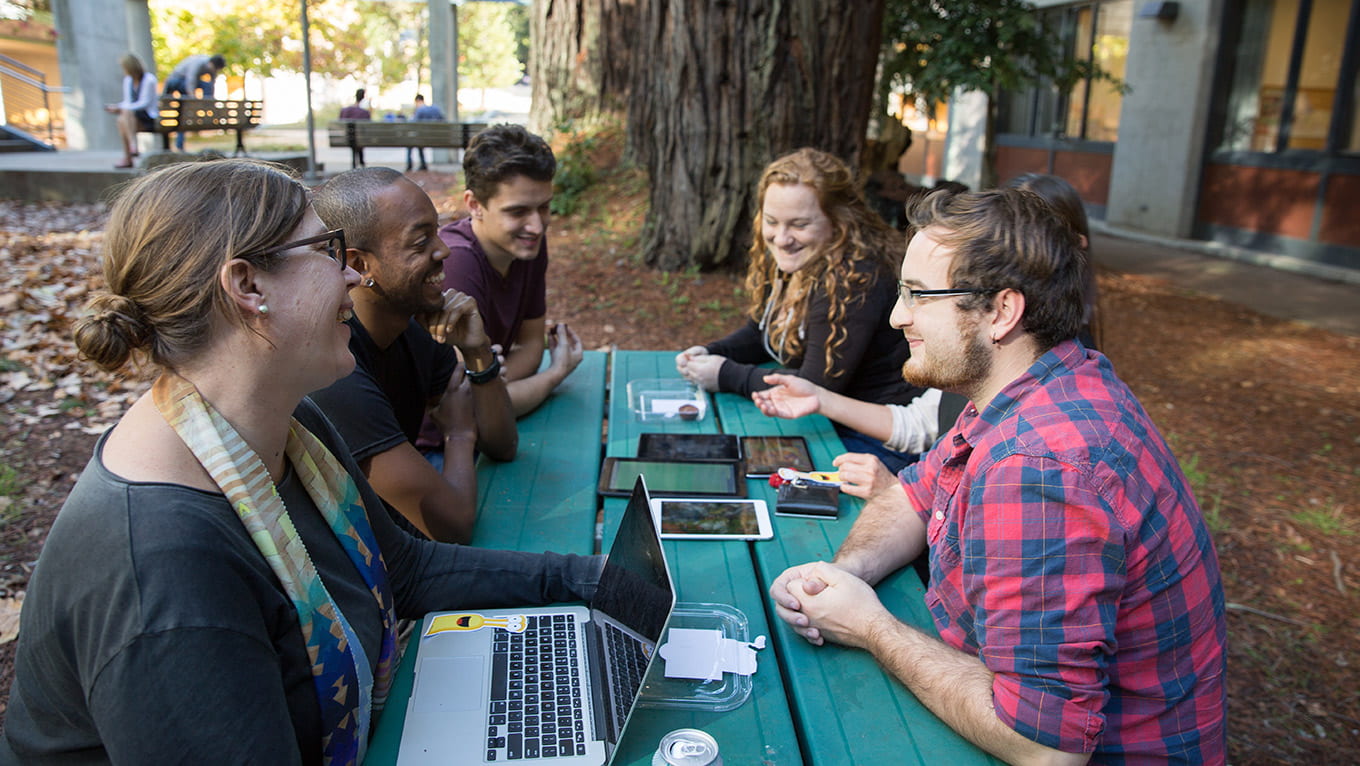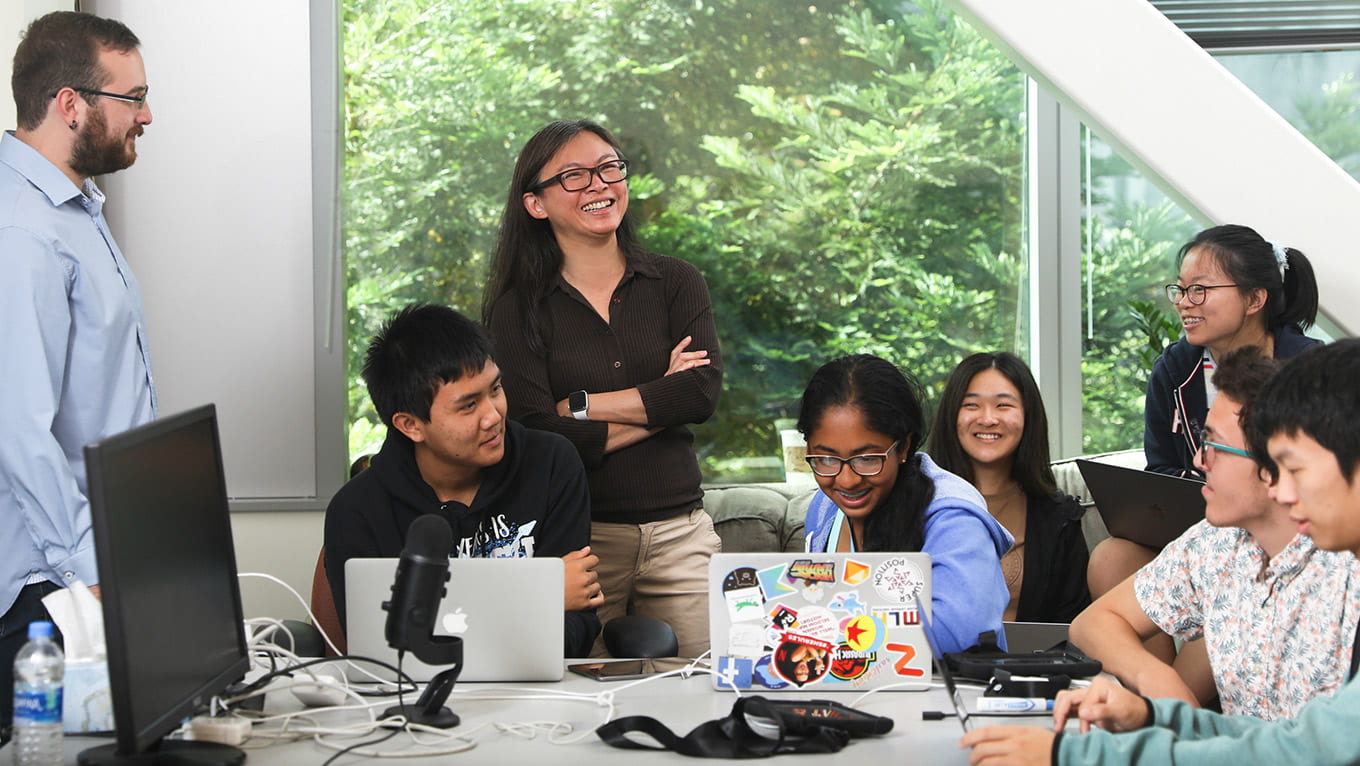
Santa Cruz, CA—Computational Media Professor Katherine Isbister at UC Santa Cruz has received $373,000 from the National Science Foundation to fund “Social Virtual Reality Technology to Improve Networked Meetings.” The project will investigate how social VR technology can be used to enhance networked meetings.
While COVID-19 has reshaped the way many people work, meetings are still essential to getting things done in the workplace. Remote meeting platforms such as Zoom not only reduce pandemic health risks, they also help save costs on travel and enable people to collaborate from all over the world. Yet video conferencing is limited in how it supports team communication and connection.
Isbister’s project will explore how a range of new social augmentations in VR could improve networked meetings. For example, visual feedback can help meeting participants be aware of how much each person is talking, potentially helping teams foster more balanced participation. This could bring a range of benefits: from supporting productive social interactions to helping people manage time and stick to an agenda.

Similarly, social augmentations in VR could also enable people to come to decisions more quickly or help them to visualize and document their collaborations. The ultimate goal is to create social augmentations that are valuable enough that, in the future, even people meeting in the same location will want to jump into VR (or some form of XR) in order to take advantage of these sorts of social augmentation possibilities. In other words, this research proposes VR meeting tools that are not merely a substitute for face-to-face but could actually improve on face-to-face interaction for workplace meetings.
The research team has begun work on a testbed for building out social augmentations in VR.
Details of the grant can be found here: https://www.nsf.gov/awardsearch/showAward?AWD_ID=2007627
For information about Prof. Katherine Isbister’s research, please see: http://www.katherineinterface.com/




